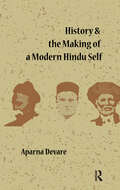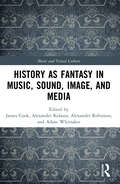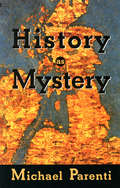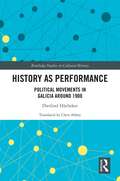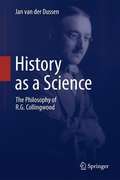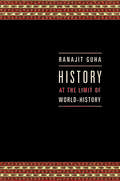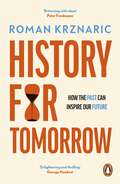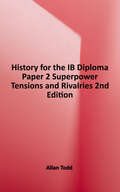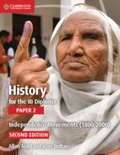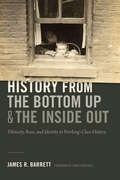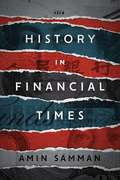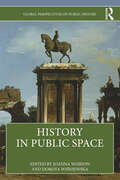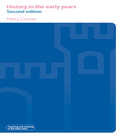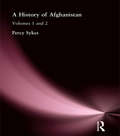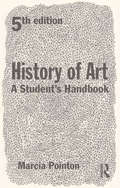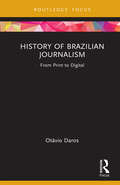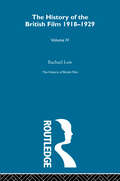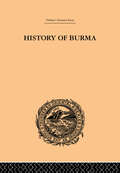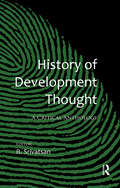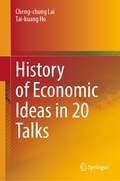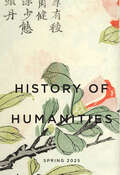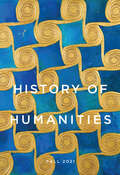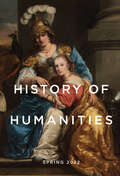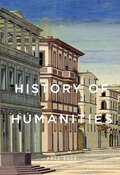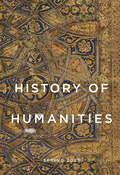- Table View
- List View
History and the Making of a Modern Hindu Self
by Aparna DevareTaking the contentious debates surrounding historical evidence and history writing between secularists and Hindu nationalists as a starting point, this book seeks to understand the origins of a growing historical consciousness in contemporary India, especially amongst Hindus. The broad question it poses is: Why has ‘history’ become such an important site of identity, conflict and self-definition amongst modern Hindus, especially when Hinduism is known to have been notoriously impervious to history? As modern ideas regarding notions of history came to India with colonialism, it turns to the colonial period as the ‘moment of encounter’ with such ideas. The book examines three distinct moments in the Hindu self through the lives and writings of lower-caste public figure Jotiba Phule, ‘moderate’ nationalist M. G. Ranade and Hindu nationalist V. D. Savarkar. Through a close reading of original writings, speeches and biographical material, it is demonstrated that these three individuals were engaged with a modern historical and rationalist approach. However, the same material is also used to argue that Phule and Ranade viewed religion as living, contemporaneous and capable of informing both their personal and political lives. Savarkar, the ‘explicitly Hindu’ leader, on the contrary, held Hindu practices and traditions in contempt, confining them to historical analysis while denying any role for religion as spirituality or morality in contemporary political life. While providing some historical context, this volume highlights the philosophical/ political ideas and actions of the three individuals discussed. It integrates aspects of their lives as central to understanding their politics.
History as Fantasy in Music, Sound, Image, and Media (Music and Visual Culture)
by James Cook, Alexander Kolassa, Alexander Robinson, and Adam WhittakerExploring how music is used to portray the past in a variety of media, this book probes the relationship between history and fantasy in the imagination of the musical past. The volume brings together essays from multidisciplinary perspectives, addressing the use of music to convey a sense of the past in a wide range of multimedia contexts, including television, documentaries, opera, musical theatre, contemporary and historical film, videogames, and virtual reality. With a focus on early music and medievalism, the contributors theorise the role of music and sound in constructing ideas of the past. In three interrelated sections, the chapters problematise notions of historical authenticity on the stage and screen; theorise the future of musical histories in immersive and virtual media; and explore sound’s role in more fantastical appropriations of history in television and videogames. Together, they poseprovocative questions regarding our perceptions of ‘early’ music and the sensory experience of distant history. Offering new ways to understand the past at the crossroads of musical and visual culture, this collection is relevant to researchers across music, media, and historical and cultural studies.
History as Mystery
by Michael ParentiEssays on how history's victors distort and suppress the documentary record in order to perpetuate their power and privilege, and how historians are influenced by the professional and class environment in which they work. "Michael Parenti, always provocative and eloquent, gives us a lively as well as valuable critique of orthodoxy posing as 'history. '"-Howard Zinn"Solid if surely controversial stuff. "- Kirkus Table of Contents Prologue: Against the Mainstream History as Miseducation Mainstream Orthodoxy The Hunt for Real History Textbooks: America the Beautiful For Business, Against Labor The School as a Tool Priests and Pagans, Saints and Slaves Triumph of the One True Faith Silencing the Pagans Accepting the Powers that Be Affluent Believers Saints For Slavery Bishops and Barbarians, Jezebels and Jews The Myth of the Devout Peasant The Curse of Eve The Burning of Books Preparing the Holocaust History in the Faking Suppression at the Point of OriginCold War in the Archives Classified History, USA Listening to the Muted Masses In Ranke's Footsteps His Majesty's Servant An Aristocratic Profession' Purging the Reds Publishing and Privishing' Marketing the Right Stuff The Strange Death of President Zachary Taylor, a Study in the Manufacture of Mainstream History Examining the Examination Confrontation with the Slavocracy A lethal Dose of Cherries and Milk? Honorable Men and Official History Against Psychopolitics Depoliticizing the Political Dubious Clinical Data Lenin as Oedipus The Compulsive Hoover The Political Hoover When the Political Becomes Personal Afterword
History as Performance: Political Movements in Galicia Around 1900 (Routledge Studies in Cultural History #93)
by Dietlind HüchtkerThis study analyzes history as performance: as the interaction of actors, plays, stages and enactments. By this, it examines women’s politics in Habsburg Galicia around 1900: a Polish woman active in the peasant movement, a Ukrainian feminist, and a Jewish Zionist. It shows how the movements constructed essentialistically regarded collectives, experience as a medially comprehensible form of credibility, and a historically based inevitability of change, and legitimized participation and intervention through social policy and educational practices. Traits shared by the movements included the claim to interpretive sovereignty, the ritualization of participation, and the establishment of truths about past and future.
History as a Science
by Jan Van DussenSince its appearance in 1981 History as a Science has been welcomed as a coherent and comprehensive review and analysis of the many aspects of Collingwood's philosophy of history, the development of his views, and their reception. The book was the first to pay extensive attention to Collingwood's unpublished manuscripts, and to his work as an archaeologist and historian. With the publication of this volume Jan van der Dussen, opened up a new angle in Collingwood studies. The republication of this volume meets an increasing demand to make the book available for future Collingwood scholars, and people interested in Collingwood's philosophy. Apart from verbal changes to improve readability and a new pagination, the manuscript is the same as the original.
History at the Limit of World-History
by Ranajit GuhaThe past is not just, as has been famously said, another country with foreign customs: it is a contested and colonized terrain. Indigenous histories have been expropriated, eclipsed, sometimes even wholly eradicated, in the service of imperialist aims buttressed by a distinctly Western philosophy of history. Guha offers a critique of such historiography by taking issue with the Hegelian concept of World-history.
History for Tomorrow: Inspiration from the Past for the Future of Humanity
by Roman Krznaric'Brimming with ideas and insights, this is a welcome, important and clear-eyed view of how understanding the past can help us better prepare for the future' - Peter Frankopan, bestselling author of The Earth Transformed and The Silk Roads'Enlightening and thrilling. History for Tomorrow tells us who we are and who we could be' - George Monbiot, bestselling author of Regenesis and How Did We Get Into This Mess?What can humankind’s rich history of radical revolts teach us about the power of disobedience to tackle the climate crisis? What inspiration could we take from eighteenth century Japan to create a regenerative economy today? How might understanding the origins of capitalism spark ideas for bringing AI under control?In History for Tomorrow, leading social philosopher Roman Krznaric unearths fascinating insights and inspiration from the last 1000 years of world history that could help us confront the most urgent challenges facing humanity in the twenty-first century. From bridging the inequality gap and reducing the risks of genetic engineering, to reviving our faith in democracy and avoiding ecological collapse, History for Tomorrow shows that history is not simply a means of understanding the past but a way of reimagining our relationship with the future. Krznaric reveals how, time and again, societies have risen up, often against the odds, to tackle challenges and overcome crises. History offers a vision of radical hope that could turn out to be our most vital tool for surviving and thriving in the turbulent decades ahead.
History for the IB Diploma The Cold War: Superpower Tensions and Rivalries, 2nd Edition (IB Diploma Ser.)
by Allan ToddComprehensive second editions of History for the IB Diploma Paper 2, revised for first teaching in 2015. This coursebook covers Paper 2, World History Topic 12: The Cold War: Superpower Tensions and Rivalries (20th century) of the History for the IB Diploma syllabus for first assessment in 2017. Tailored to the requirements of the IB syllabus and written by experienced IB History examiners and teachers, it offers authoritative and engaging guidance through the following detailed studies of leaders and crises from around the world: Truman, Khrushchev, Gorbachev, Castro, and Reagan; and the Cuban Missile Crisis, the Korean War, the Prague spring, and the Soviet invasion of Afghanistan.
History for the IB Diploma: Independence Movements (1800-2000)
by Allan Todd Jean BottaroThis book is designed to prepare students taking the Paper 2 topic World History Topic 8: Independence movements (1800-2000) in the IB History examination. It will examine themes relating to independence movements in Africa and the Middle East, Asia, the Americas and Europe. The themes are organised within chapters focusing on case studies across these regions.
History from the Bottom Up and the Inside Out: Ethnicity, Race, and Identity in Working-Class History
by James R. BarrettIn History from the Bottom Up and the Inside Out James R. Barrett rethinks the boundaries of American social and labor history by investigating the ways in which working-class, radical, and immigrant people's personal lives intersected with their activism and religious, racial, ethnic, and class identities. Concerned with carving out space for individuals in the story of the working class, Barrett examines all aspects of individuals' subjective experiences, from their personalities, relationships, and emotions to their health and intellectual pursuits. Barrett's subjects include American communists, "blue-collar cosmopolitans"—such as well-read and well-traveled porters, sailors, and hoboes—and figures in early twentieth-century anarchist subculture. He also details the process of the Americanization of immigrant workers via popular culture and their development of class and racial identities, asking how immigrants learned to think of themselves as white. Throughout, Barrett enriches our understanding of working people’s lives, making it harder to objectify them as nameless cogs operating within social and political movements. In so doing, he works to redefine conceptions of work, migration, and radical politics.
History in Financial Times (Currencies: New Thinking for Financial Times)
by Amin SammanCritical theorists of economy tend to understand the history of market society as a succession of distinct stages. This vision of history rests on a chronological conception of time whereby each present slips into the past so that a future might take its place. This book argues that the linear mode of thinking misses something crucial about the dynamics of contemporary capitalism. Rather than each present leaving a set past behind it, the past continually circulates through and shapes the present, such that historical change emerges through a shifting panorama of historical associations, names, and dates. The result is a strange feedback loop between now and then, real and imaginary. Demonstrating how this idea can give us a better purchase on financial capitalism in the post-crisis era, History in Financial Times traces the diverse modes of history production at work in the spheres of financial journalism, policymaking, and popular culture. Paying particular attention to narrative and to notions of crisis, recurrence, and revelation, Amin Samman gives us a novel take on the relation between historical thinking and critique.
History in Public Space (Global Perspectives on Public History)
by Joanna Wojdon Dorota WiśniewskaThis book focuses on various manifestations of history in public spaces: in the physical ones of various historical times and geographical places, as well as in the virtual world.It discusses how the spaces have been shaped and re-shaped, by whom and for what (not always laudable) purposes, and raises pragmatical and ethical questions for both research and practical activities in the field. By combining both micro and global perspectives, the universal role that history plays in spaces created by and for, as well as the factors determining its usages, is revealed. The authors are rooted in specific national contexts: Canadian or American, Ukrainian or Polish, British or Irish, German or Luxembourgish, Korean or Brazilian, and the case studies are varied including large cities and small towns, city centers, and godforsaken cemeteries, but the narratives built on these cases go beyond when they deal with issues such as decoding history and its meanings in public spaces, doing history in public spaces, and observing changes in manifestations of history in public spaces.This volume is an essential resource for anyone interested in the relationship between history and public space in a global perspective.
History in the Early Years
by Hilary CooperHistory in the Early Years is an innovative and accessible guide to helping young children explore the past through their environment, family history and story. This fully revised edition includes guidance on introducing children to the past at the Foundation Stage in school and pre-school settings. Throughout it shows how the requirements of the early years curriculum can be met in innovative ways, and is fully illustrated by case study examples of children's learning and also supported by recent research.The book will support both new and experienced early years practitioners in developing young children's sense of identity through history. It encourages practitioners to ensure that history is a significant dimension of early years education and will be essential reading for all teachers in the early and primary years.
History of Afghanistan (Trubner's Oriental Ser.)
by Percy SykesFirst published in 2007. This title combines two volumes of work; fifty-eight chapters dissecting the history of Afghanistan with sketch maps and illustrations throughout. Sykes argues that few countries present problems of greater interest to the historian than landlocked Afghanistan, the counterpart in Asia of Switzerland in Europe. Their studies cover the prehistory in the Near East, going through the history of each dynasty up to the early 1900s. A key text for historians, students and those interested in the complex history of the country.
History of Art: A Student's Handbook
by Marcia PointonThis fully revised edition of the History of Art: A Student's Handbook introduces students to the kinds of practices, challenges, questions and writings they will encounter in studying the history of art. Marcia Pointon conveys the excitement of Art History as a multi-faceted discipline addressing all aspects of the study of media, communication and representation. She describes and analyses different methods and approaches to the discipline, explaining their history and their effects on the day-to-day learning process. She also discusses the relationship of Art History to related disciplines including film, literature, design history and anthropology. The fifth edition of this classic text includes: * information on why Art History is important and relevant in today's world guidance on choosing a degree course case studies of careers pursued by Art History graduates advice on study skills and reading methods a bibliography and further reading detailed up to date advice on electronic resources and links to essential websites History of Art covers academic, training and vocational aspects of Art History, providing a wealth of information on the characteristics of courses available and on the relationship between Art History and the world of museums and heritage.
History of Brazilian Journalism: From Print to Digital (Routledge Focus on Communication and Society)
by Otávio DarosThis book constitutes a first-of-its-kind synthesis of the development of journalism in Brazil, considering both its mediations with national social and political life and its relationships of influence and dependence on international economic centers. The author suggests that Brazilian journalism has so far known four phases: doctrinal political journalism, narrative literary journalism, industrial news journalism, and multimedia infotainment journalism. Devoting a chapter to each phase, Daros presents a critical map of the genesis and metamorphosis of journalistic practices in the country. The analysis goes beyond a mere study of national history to mark the points of connection between the Brazilian case and other geographic spaces, showing how the profession moved between two Western paradigms and was continually shaped by the economic, political, and cultural context from which it emerged and was inserted. The final part of the book reflects critically on the state of Brazilian journalism today, considering the new social media culture, the increasing focus on costs over quality of news products, and the failed social responsibility of the profession to inform national public opinion. This study is an important touchstone for researchers of Brazilian and Latin American journalism and those interested in the ways in which the media shapes and is shaped by a country’s socio-political climate.
History of British Film (Volume 4): The History of the British Film 1918 - 1929
by Rachael LowThis set is one of the cornerstones of film scholarship, and one of the most important works on twentieth century British culture. Published between 1948 and 1985, the volumes document all aspects of film making in Britain from its origins in 1896 to 1939.Rachael Low pioneered the interpretation of films in their context, arguing that to understand films it was necessary to establish their context. Her seven volumes are an object lesson in meticulous research, lucid analysis and accessible style, and have become the benchmark in film history.
History of Burma: From the Earliest Time to the End of the First War with British India
by Arthur P. PhayreThis classic history, first published in 1883, is the first English-language work to provide a comprehensive history of Burma, now Myanmar, based on Burmese sources. It incorporates the early history not only of Burma proper, but also those of the surrounding kingdoms of Pegu, Taungu, Tenasserim, and Arakan, comparing when possible differing accounts of events as described in those chronicles. Includes original extensive appendixes and large foldout map.
History of Development Thought: A Critical Anthology
by R. SrivatsanDevelopment thought emerged as the governing principle of First World global hegemony in the new world order marked by the end of the Second World War and decolonization. Six decades later, at yet another critical geopolitical conjuncture marked by globalization and neoliberal resurgence, History of Development Thought revisits the major strands in the development debate from the 1950s to the early twenty-first century. The volume places classic international interventions in critical development thinking alongside major contributions to the discourse from the Indian context.Beginning by juxtaposing W. A. Lewis’s classic liberal theory of the dual economy with P. C. Mahalanobis’s schema for planned development in India, the volume tracks the trajectory of the development debate — from the Latin American neo-Marxist paradigm, through the ‘mode of production’ debates in India, to Indian and international feminist perspectives on development. It explores the departures of the 1980s in India and elsewhere as theorists, including Pranab Bardhan, Sukhamoy Chakravarty, Partha Chatterjee, A. O. Hirschman, Samuel Huntington, and Amartya Sen, sought to address from various perspectives the reasons for the failure of development to live up to expectations. It ends with excerpts signposting the emerging strands of the development (and post-development) debate at the turn of the twenty-first century. Throughout, the volume remains committed to the paradigm of development as a horizon of critical thought and a field of democratic politics, while paying attention to the multiple storylines of the discourse over the last 60 years. This anthology, together with its critical introduction and rigorous prefatory remarks for each extract, will be invaluable to students and researchers in the social sciences and the humanities, especially those in development studies, history, politics and economics, as well as to activists, administrators, and professionals in health, education, and development.
History of Economic Ideas in 20 Talks
by Cheng-chung Lai Tai-kuang HoThis book provides a concise history of economic thought for readers of all ages. While some basic economics knowledge would be helpful, it is not required. The book sets out to achieve three aims: to be interesting, entertaining, and thought-provoking. While the authors may appear opinionated in certain instances, this is intentionally done in order to alert readers to form their own views. History of ideas does not make the us smarter nor richer, but it can reduce our ignorance and the “banality of evil”—a term Hannah Arendt referred to people who lack self-reflection, “He did his duty...; he not only obeyed orders, he also obeyed the law.”
History of Humanities, volume 10 number 1 (Spring 2025)
by History of HumanitiesThis is volume 10 issue 1 of History of Humanities. History of Humanities, along with the Society for the History of the Humanities, takes as its subject the history of a wide variety of disciplines including archaeology, art history, historiography, linguistics, literary studies, musicology, philology, and media studies, tracing these fields from their earliest developments, through their formalization into university disciplines, and to the modern day. By exploring the history of humanities across time and civilizations and along with their sociopolitical and epistemic implications, the journal takes a critical look at the concept of humanities itself.
History of Humanities, volume 6 number 2 (Fall 2021)
by History of HumanitiesThis is volume 6 issue 2 of History of Humanities. History of Humanities, along with the Society for the History of the Humanities, takes as its subject the history of a wide variety of disciplines including archaeology, art history, historiography, linguistics, literary studies, musicology, philology, and media studies, tracing these fields from their earliest developments, through their formalization into university disciplines, and to the modern day. By exploring the history of humanities across time and civilizations and along with their sociopolitical and epistemic implications, the journal takes a critical look at the concept of humanities itself.
History of Humanities, volume 7 number 1 (Spring 2022)
by History of HumanitiesThis is volume 7 issue 1 of History of Humanities. History of Humanities, along with the Society for the History of the Humanities, takes as its subject the history of a wide variety of disciplines including archaeology, art history, historiography, linguistics, literary studies, musicology, philology, and media studies, tracing these fields from their earliest developments, through their formalization into university disciplines, and to the modern day. By exploring the history of humanities across time and civilizations and along with their sociopolitical and epistemic implications, the journal takes a critical look at the concept of humanities itself.
History of Humanities, volume 7 number 2 (Fall 2022)
by History of HumanitiesThis is volume 7 issue 2 of History of Humanities. History of Humanities, along with the Society for the History of the Humanities, takes as its subject the history of a wide variety of disciplines including archaeology, art history, historiography, linguistics, literary studies, musicology, philology, and media studies, tracing these fields from their earliest developments, through their formalization into university disciplines, and to the modern day. By exploring the history of humanities across time and civilizations and along with their sociopolitical and epistemic implications, the journal takes a critical look at the concept of humanities itself.
History of Humanities, volume 8 number 1 (Spring 2023)
by History of HumanitiesThis is volume 8 issue 1 of History of Humanities. History of Humanities, along with the Society for the History of the Humanities, takes as its subject the history of a wide variety of disciplines including archaeology, art history, historiography, linguistics, literary studies, musicology, philology, and media studies, tracing these fields from their earliest developments, through their formalization into university disciplines, and to the modern day. By exploring the history of humanities across time and civilizations and along with their sociopolitical and epistemic implications, the journal takes a critical look at the concept of humanities itself.
